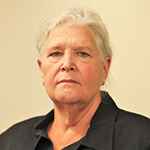‘You’re at home’ – community welcomes Authentix Bettendorf
Dave Thompson
Fair housing legislation, the fight to preserve the American dream of homeownership and the challenge of finding affordable housing amid a sky-high market were among the issues explored by area leaders Thursday, April 28.
Attendees at the Fair Housing Legislative Breakfast Forum in Rock Island also celebrated Quad Cities successes and outlined challenges. More than 100 area leaders, real estate agents, and housing and social service…

Get immediate, unlimited access to all subscriber content and much more.
Learn more in our subscriber FAQ.
Do you want to read and share this article without a paywall?
